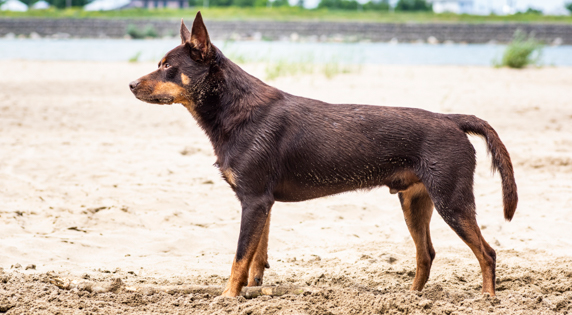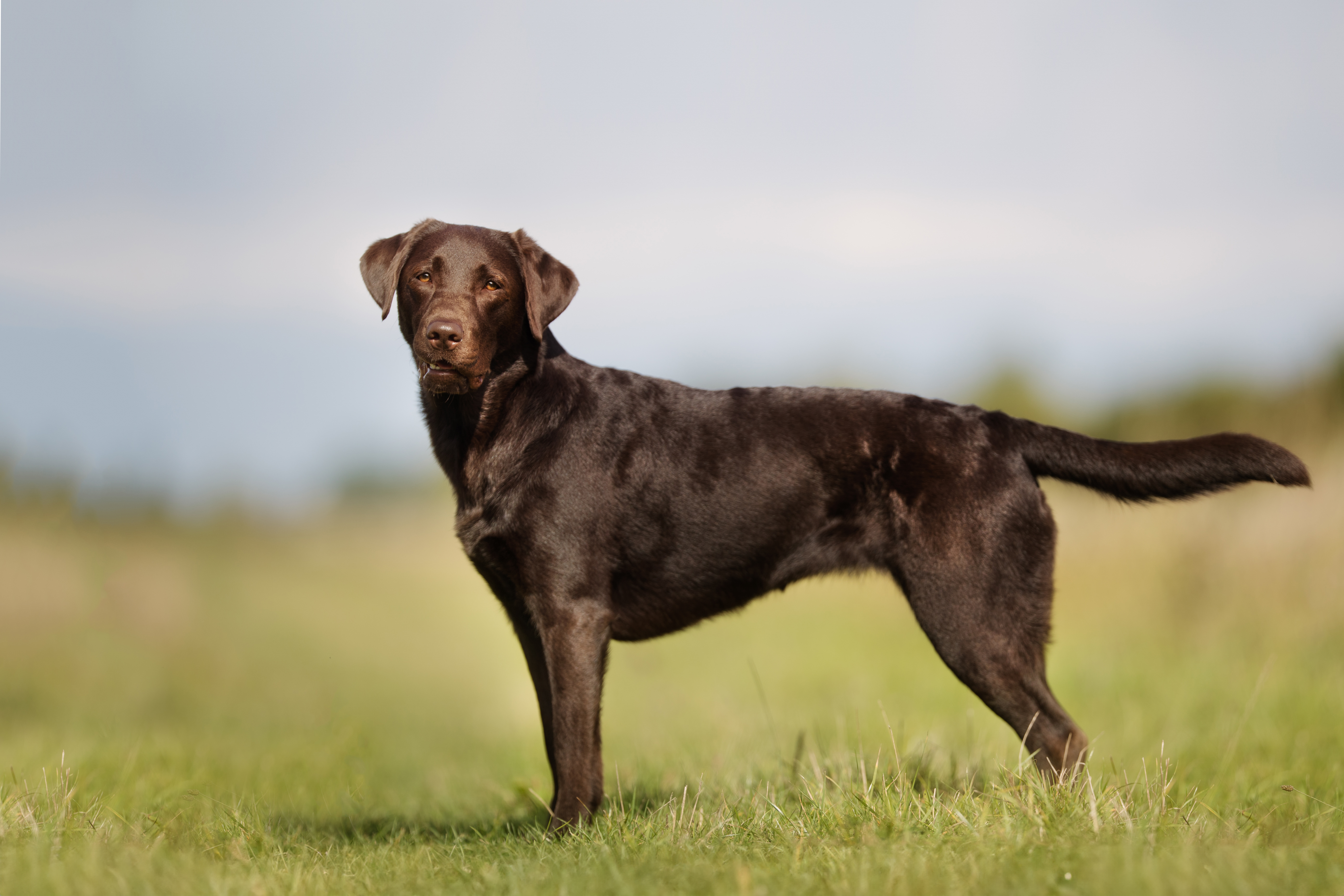
What is the best dog food?
The answer to the above question is subjective and depends on your own preference and that of your dog. We’ve made an overview of the most popular diets in every category, using our extensive range of dog foods.
The Kelpie is an energetic, intelligent, and versatile herding dog originating from Australia, where it was originally bred to drive cattle and sheep over long distances. This breed is known for its endurance, work ethic, and independence, which make it an excellent performer in dog sports and as a working dog. The Kelpie has a compact, athletic build and a short, dense coat that protects it from various weather conditions. It comes in a variety of colours, including black, red, chocolate brown, and blue. Its sharp gaze and alertness make it an excellent watchdog and a loyal companion. Due to its high energy level and intelligence, the Kelpie requires plenty of physical activity and mental stimulation. It is best suited to active owners who enjoy exercising or working with their dog. With proper training and sufficient challenge, the Kelpie becomes a dedicated, eager-to-learn, and reliable dog that forms a strong bond with its owner.

The Kelpie originates from Australia, where it was developed in the 19th century as a livestock herding dog for managing sheep and cattle across the vast and rugged terrain. The breed emerged from a cross between British Collies and local working dogs, selected for their endurance, intelligence, and independence. Kelpies quickly became indispensable to Australian farmers thanks to their sharp instincts, strong work ethic, and ability to cover long distances in extreme weather conditions. Today, the Kelpie is still widely used as a working dog and is also loved worldwide as a sport and family dog by active owners.
The Kelpie is an intelligent, energetic, and devoted dog known for its exceptional drive and perseverance. This breed is naturally independent and eager to learn, making it highly trainabl, but it also requires a consistent and experienced owner. Originally bred as a livestock herder, the Kelpie has a strong instinct to work and stay active. It is extremely lively and needs both physical and mental stimulation to remain happy and well-balanced. Without adequate challenges, it may become restless or display destructive behaviour. Additionally, the Kelpie is loyal and affectionate towards its family, but can be reserved with strangers. It is vigilant and alert, which also makes it a good watchdog. Because of its intelligence and high energy level, the Kelpie is best suited to an active owner who enjoys working with their dog or participating in activities such as agility, tracking, or herding.
The Kelpie is a medium-sized, athletic, and muscular dog with a lean but powerful build. It has a well-proportioned body, long, muscular legs, and a deep chest, contributing to its excellent stamina. The head is wedge-shaped with medium-sized, upright ears and expressive, almond-shaped eyes that give it an alert and intelligent appearance. Its coat is short to medium in length, dense, and weather-resistant, offering protection against various weather conditions. Kelpies come in a range of colours, including black, red, chocolate brown, blue, fawn, and combinations with tan markings. Its tail is moderately long and is often carried in a slight curve when in motion.
The Kelpie requires a lot of daily exercise to stay physically and mentally fit. On average, this breed needs about 2 hours of activity per day, including long walks, active play sessions, and ideally challenging tasks that stimulate its mind such as obedience training, scent work, or agility sports. With its strong work drive and impressive endurance, the Kelpie enjoys running, retrieving, and herding, which align with its natural instincts. Having space to move freely is ideal, and a dynamic lifestyle with lots of stimulation keeps the Kelpie happiest.
The Kelpie requires relatively low maintenance, but regular care helps to keep it in top condition. Its short, dense coat is self-cleaning and only needs brushing once a week to remove loose hairs and dirt. During shedding seasons, more frequent brushing may be necessary to manage the hair loss. Due to its active lifestyle, it is important to check and clean its ears regularly, especially after outdoor play or swimming. Its nails should also be trimmed when needed, as they don’t always wear down naturally. Additionally, dental care is essential. Brushing its teeth or providing chew toys can help prevent plaque and tartar build-up, keeping the teeth healthy. Overall, the Kelpie is a low-maintenance breed, but a consistent grooming routine supports its health and wellbeing.
The Kelpie is generally a healthy breed, but like many other dogs, it can be prone to certain hereditary conditions. Hip dysplasia and elbow dysplasia may occur, potentially causing pain and reduced mobility. Progressive retinal atrophy (PRA) is another concern—an eye condition that can lead to blindness. Some Kelpies may also develop Collie Eye Anomaly (CEA), an inherited defect affecting vision. Although typically robust and active, Kelpies can occasionally suffer from autoimmune disorders. Cryptorchidism, where one or both testicles fail to descend, can also occur in males. With regular health checks, responsible breeding, and proper care, many of these conditions can be detected early and managed, allowing the Kelpie to remain healthy and energetic.
Breeds similar to the Kelpie in terms of appearance, energy, and work drive include:
When purchasing a Kelpie, it is important to choose a reliable breeder who performs health testing especially for hereditary conditions like hip dysplasia (HD), elbow dysplasia (ED), and eye problems. A good breeder will be transparent about the health of the parent dogs and will ensure proper socialisation of the puppies. The price of a Kelpie may vary depending on factors such as pedigree, health testing, and breeding line (working or show line). Working lines tend to be more active and have a stronger drive to work, requiring more challenge from the owner. It is essential to thoroughly research the breed. The Kelpie is not suited for inexperienced owners due to its high energy, intelligence, and need for work. Without enough stimulation, it may develop unwanted behaviours. Therefore, it is always recommended to go through a reputable and responsible breeder who contributes to the long-term health and welfare of the breed.
The Kelpie is an energetic, intelligent, and highly driven working dog with specific traits and needs. If you’re considering bringing a Kelpie into your home, it’s important to assess whether this breed fits your lifestyle and level of experience. Below is what you need to provide to ensure the Kelpie thrives.
The Kelpie is well-suited to owners who:
In short, the Kelpie is a loyal, eager-to-learn, and affectionate companion that fits best with an active owner who provides challenge, guidance, and structure.
The Kelpie is better suited to experienced owners. Its high energy, intelligence, and strong work ethic require someone who can manage these traits and provide clear structure. Without adequate stimulation, the Kelpie can quickly develop behavioural issues.
The Kelpie is ideal for experienced dog lovers who are active, enjoy training, and understand what a working dog needs to be happy.

The answer to the above question is subjective and depends on your own preference and that of your dog. We’ve made an overview of the most popular diets in every category, using our extensive range of dog foods.

This blog article discusses 10 commonly kept medium-sized dog breeds with the most important characteristics associated with these breeds. Dogs in this category have an adult weight between 10-25 kg. This is our top 10 medium dog breeds. Looking for a different breed? Check out our dog breeds page.

If you've ever owned a dog, you'll know that every dog is unique. Dogs can have breed-specific characteristics, though, like joint or coat issues. To support these specific characteristics, Royal Canin has created special nutrition that meets the needs of individual dog breeds. Read all about breed-specific dog food in this article!

Add products to view your basket
We use cookies to help us serve you better and more personally. Functional cookies ensure that the website works properly and have an analytical function. We also use technology to track your behaviour anonymously, both inside and outside our website. Personal data and cookies may be used for personalisation or advertising. Want to know more? Read our privacy policy and cookie statement here. If you choose to reject, we will only place functional and analytical cookies.
